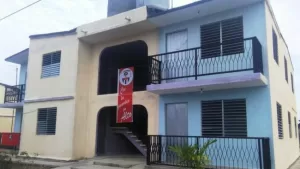Courtesy: The Leaflet
2 December 2021: Thirty-seven years may appear to be a long enough period for the survivors of an industrial disaster to put behind the painful trauma of a man-made tragedy, and move on with their lives, in the hope of catching up with the rest of the society. For the survivors of the 1984 Bhopal gas tragedy, however, that option does not seem to be available, given the tardy progress in not only relief and rehabilitation, but in meting out even symbolic punishment to those found guilty of having caused the disaster.
Another year has passed without most of the core issues facing the Bhopal gas survivors remaining unaddressed. The poisonous gas leak disaster had resulted in the eventual death of at least 25,000 victims, and had caused injuries in varying degrees to over 5,50,000 others.
The escape of toxic fumes from a pesticide plant’s storage tank containing about 40 tons of methyl isocyanate (MIC) – an extremely hazardous chemical – had spread to about 40 sq km of area, and had affected two-thirds of the city’s then population of around 900,000. The pernicious impact on flora and fauna in the affected area was equally grave.
The pesticide plant was operated by Union Carbide India Limited (UCIL). UCIL was then controlled by Union Carbide Corporation (UCC) – a company now owned by the Dow Chemical Company, a subsidiary of Dow Inc., a giant U.S. multinational chemical company.
Unfortunately, even over three and a half decades after the disaster, neither the state nor the union government has attempted either to undertake a comprehensive assessment of the ramifications of the disaster or to take necessary remedial measures.
The Supreme Court assisted settlement of February 14/15, 1989 for a sum of 470 million U.S. dollars (then about Rs. 705 crores) – based on the assumption that only around 3,000 victims had died and another 102,000 had suffered injuries in varying degrees – was a complete sham, with each gas victim being finally awarded less than one-fifth of the sum allotted even as per the terms of that unjust settlement.
The current status of issues such as health care, compensation, prosecution of the accused, and remediation of the environment, may be briefly recounted as follows:
Healthcare
Apart from the fact that a fairly large health-infrastructure has been built in terms of buildings and number of hospital beds (about 1000 beds exclusively for gas victims) because of pressure exerted over the years by organizations supporting the cause of the Bhopal gas victims, the quality of healthcare in terms of investigation, diagnosis, treatment, research and record-keeping continues to be abysmal as ever.
The persistent apathy of the Indian Council of Medical Research (ICMR) and the Government of Madhya Pradesh in monitoring the health status of the Bhopal gas victims is shocking, to say the least. They have failed to maintain proper medical records of hospitals and clinics through computerization and networking and have failed to supply health-booklets to each gas victim with his or her complete medical record.
That proper protocol for treatment of most gas-related ailments has not been evolved even 37 years after the disaster speaks volumes about the apathetic attitude of the concerned authorities in this regard. Mere symptomatic treatment and over-medication due to lack of proper monitoring has resulted in an increasing number of renal failures among gas victims. What is equally shocking is that even 37 years after the disaster, most of the gas victims seeking treatment continue to be classed as “temporarily injured” in order to deny them enhanced compensation for permanent injury.
Writ Petition (Civil) No. 50 of 1998, which the Bhopal Gas Peedith Mahila Udyog Sanghthan (BGPMUS), the Bhopal Group for Information and Action (BGIA) and the Bhopal Gas Peedith Sangharsh Sahayog Samiti (BGPSSS) had filed on January 14, 1998 before the Supreme Court with pleas to restart disaster-related medical research, monitor and record health status of each gas victim, improve health care facilities, and develop appropriate protocol for treatment of each disaster-related ailment, among other things, was upheld by the Supreme Court after 14 years of litigation on August 9, 2012. The petitioners were further directed to pursue the matter before the High Court of Madhya Pradesh (as Writ Petition No. 15658 of 2012), a task that BGPMUS & BGPSSS are actively engaged in at present.
However, the matter continues to remain pending for the last nine years before the Madhya Pradesh High Court at Jabalpur since the Union of India has repeatedly failed to comply with the numerous directions of the Court. As a result, several critical health needs of the gas victims remain largely unattended even 37 years after the disaster.
Compensation
The failure on the part of the Supreme Court to hear the long-pending Curative Petition against the unjust settlement of February 14-15, 1989, has had an adverse impact on the interests of the gas victims. Curative Petition (Civil) Nos. 345-347 of 2010, which was filed by the Union of India on December 3, 2010 to challenge the unjust settlement of February 14-15, 1989 and to seek additional sum of at least Rs. 7,728 crores more as compensation was last listed before a Constitution Bench of the Court on January 29, 2020. However, the hearing was postponed to February 11, 2020. Sadly, the matter was never listed on that date or ever since then.
The failure to dispose of the Curative Petition has also meant the indefinite postponement of the hearing of the Special Leave Petition (SLP(C) No. 12893 of 2010) filed on March 17, 2010 by eight members of BGPMUS and BGPSSS seeking enhancement of settlement sum by a factor of five in terms of the magnitude of the disaster as assessed by the Claim Courts and in terms of the gravity of injuries suffered by the gas victims on the basis of their medical records.
Failure to dispose of the pending Curative Petition and the SLP for over a decade has effectively denied the gas victims several thousands of crores of additional compensation that they are legitimately entitled to.
Criminal cases
The pace at which the pending criminal cases against the perpetrators of the Bhopal disaster are proceeding is of concern. There is not the faintest hope that they would ever be prosecuted in their lifetime since the whole process has become an almost complete farce.
Environmental remediation
The environment in and around the former Union Carbide pesticide plant continues to remain contaminated with toxic waste, which was stored or buried within the plant premises as well as dumped in the solar evaporation pond (dug outside the plant and lined with thin plastic sheets) during the operation of the plant from 1976 to 1984.
In a preliminary study titled “Assessment and Remediation of Hazardous Waste Contaminated Areas in and around M/s Union Carbide India Ltd., Bhopal” that was jointly carried out by the National Environmental Engineering Research Institute (NEERI), Nagpur, and the National Geophysical Research Institute (NGRI), Hyderabad, during 2009-2010, it was estimated that “the total quantum of contaminated soil requiring remediation amounts to 11,00,000 MT [metric tons]” (p.68). Another 345 tons of toxic waste is stored in a shed within the plant.
Representatives of BGPMUS and BGPSSS met Vishvash Sarang, Minister, Bhopal Gas Relief & Rehabilitation Department, Madhya Pradesh Government on November 29, 2021 and urged him to take the initiative in holding a workshop with all concerned parties, including international experts, to propose ways and means to remediate the contaminated site. Will the state government respond positively to the proposal since the necessary technical expertise is available for the purpose?
On the 37th anniversary of the disaster, what requires to be done, in order to provide complete justice to the survivors of the disaster, are as follows:
- Speedy implementation of the Supreme Court order dated August 9, 2012 in Writ Petition (Civil) No. 50 of 1998, which had directed the union government to provide the best medical care to the gas victims;
- Speedy Disposal of Curative Petition (Civil) Nos. 345-347 of 2010, which is currently pending before the Supreme Court, for enhancement of compensation and for remediation of the contaminated site in and around the UCIL plant at Bhopal;
- Setting up of a Special Court for speedy trial and prosecution of all the accused, who are responsible for causing the Bhopal disaster.
- Proper rehabilitation of all needy gas victims, especially widowed gas victims; and
- Provision of safe drinking water, free medical care and compensation to all victims of contaminated water and toxic waste.
[Based on a press release issued by Bhopal Gas Peedith Mahila Udyog Sanghthan and Bhopal Gas Peedith Sangharsh Sahayog Samiti]
❈ ❈ ❈
Another article by International Campaign for Justice in Bhopal adds:
Three Ways Dow Discriminates & Dehumanizes
1. No equality before the law
In the United States Dow submits unquestioningly to government agencies and courts seeking to enforce laws and standards. For instance, in 2005 a Dow joint-venture pled guilty and paid an $84 million criminal fine for participating in an international conspiracy to fix the prices of synthetic rubber in violation of the Sherman Act.
For India, where Dow subsidiary is accused of “culpable homicide not amounting to murder” for the killing of tens of thousands of innocent people, Dow has ignored six separate summonses to appear in the court’s proceedings.
2. Polluter only Pays in the US
After merging with Dupont, Dow was responsible for 171 different Superfund sites in the US, sites at which ‘Polluter Pays’ principles are enforced against originators of environmental contamination. The largest of these concerns clean up of the Tittabawassee river & Saginaw river around Midland, Michigan, where Dow is headquartered, for which Dow recently paid $77 million “to compensate the public for injuries to natural resources”.
However, in Bhopal, where Union Carbide imported polluting manufacturing technology, designed polluting waste disposal methods, monitored resulting leaks and conducted secret tests that showed lethal poisons were in soil and water next to community housing, yet warned no one, Dow has refused to take responsibility for the clean-up of the Bhopal site.
3. For Indians, no right to water
Dow donated water filtrations systems and over $100,000 in aid to Flint, Michigan, in response to its 2014 water crisis in which nearly 12,000 children were exposed to heavy metals in their drinking water.
But in Bhopal, Dow says the contaminated water near the UCIL plant site, where mercury, cancer-causing and mutagenic chemicals are found in the breast milk of nursing mothers and more than 50,000 children are at risk, is not its responsibility.




